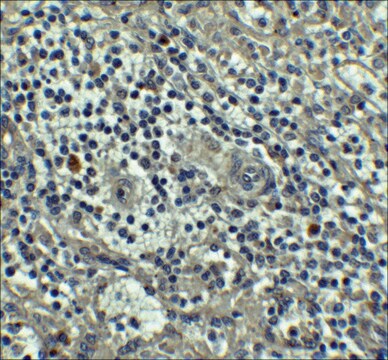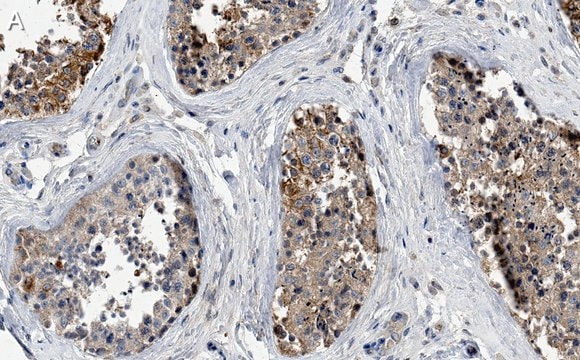Fontos dokumentumok
SAB4200226
Anti-PGC-1α(N-terminal) antibody produced in rabbit

~1.0 mg/mL, affinity isolated antibody
Szinonimák:
Anti-LEM6, Anti-PGC1, Anti-Peroxisome proliferator-activated receptor gamma, coactivator 1 alpha, PPARGC1A
About This Item
Javasolt termékek
biológiai forrás
rabbit
Minőségi szint
konjugátum
unconjugated
antitest forma
affinity isolated antibody
antitest terméktípus
primary antibodies
klón
polyclonal
form
buffered aqueous solution
molekulatömeg
antigen ~120 kDa
faj reaktivitás
human
fejlettebb validálás
recombinant expression
recombinant expression
Learn more about Antibody Enhanced Validation
koncentráció
~1.0 mg/mL
technika/technikák
western blot: 1-2 μg/mL using HEK293-T cells expressing human PGC-1α
UniProt elérési szám
kiszállítva
dry ice
tárolási hőmérséklet
−20°C
célzott transzláció utáni módosítás
unmodified
Géninformáció
human ... PPARGC1A(10891)
Related Categories
Általános leírás
Alkalmazás
Biokémiai/fiziológiai hatások
Fizikai forma
Jogi nyilatkozat
Nem találja a megfelelő terméket?
Próbálja ki a Termékválasztó eszköz. eszközt
Tárolási osztály kódja
10 - Combustible liquids
Lobbanási pont (F)
Not applicable
Lobbanási pont (C)
Not applicable
Analitikai tanúsítványok (COA)
Analitikai tanúsítványok (COA) keresése a termék sarzs-/tételszámának megadásával. A sarzs- és tételszámok a termék címkéjén találhatók, a „Lot” vagy „Batch” szavak után.
Már rendelkezik ezzel a termékkel?
Az Ön által nemrégiben megvásárolt termékekre vonatkozó dokumentumokat a Dokumentumtárban találja.
Tudóscsoportunk valamennyi kutatási területen rendelkezik tapasztalattal, beleértve az élettudományt, az anyagtudományt, a kémiai szintézist, a kromatográfiát, az analitikát és még sok más területet.
Lépjen kapcsolatba a szaktanácsadással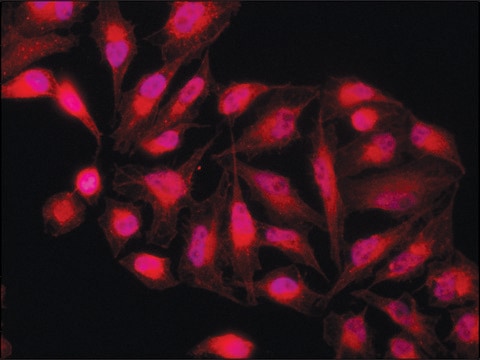
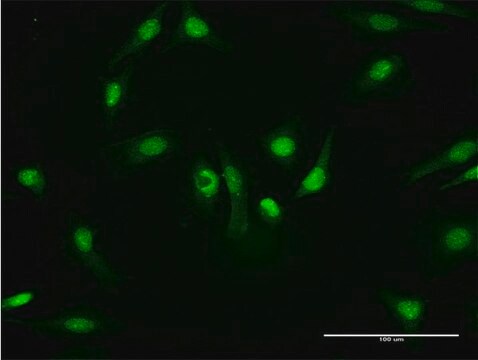
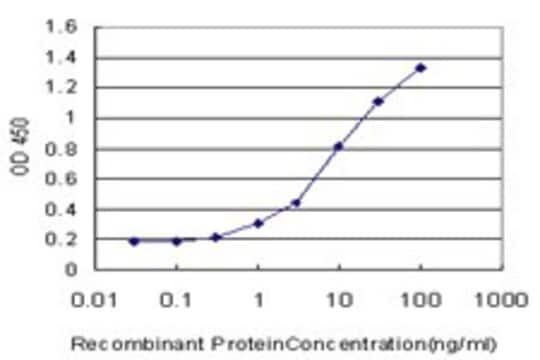



![Anti-phospho-TDP-43 [pSer409] antibody produced in rabbit ~1.0 mg/mL, affinity isolated antibody](/deepweb/assets/sigmaaldrich/product/images/407/478/bcd6d544-d187-42ed-8c1e-98bf709b4da7/640/bcd6d544-d187-42ed-8c1e-98bf709b4da7.jpg)
